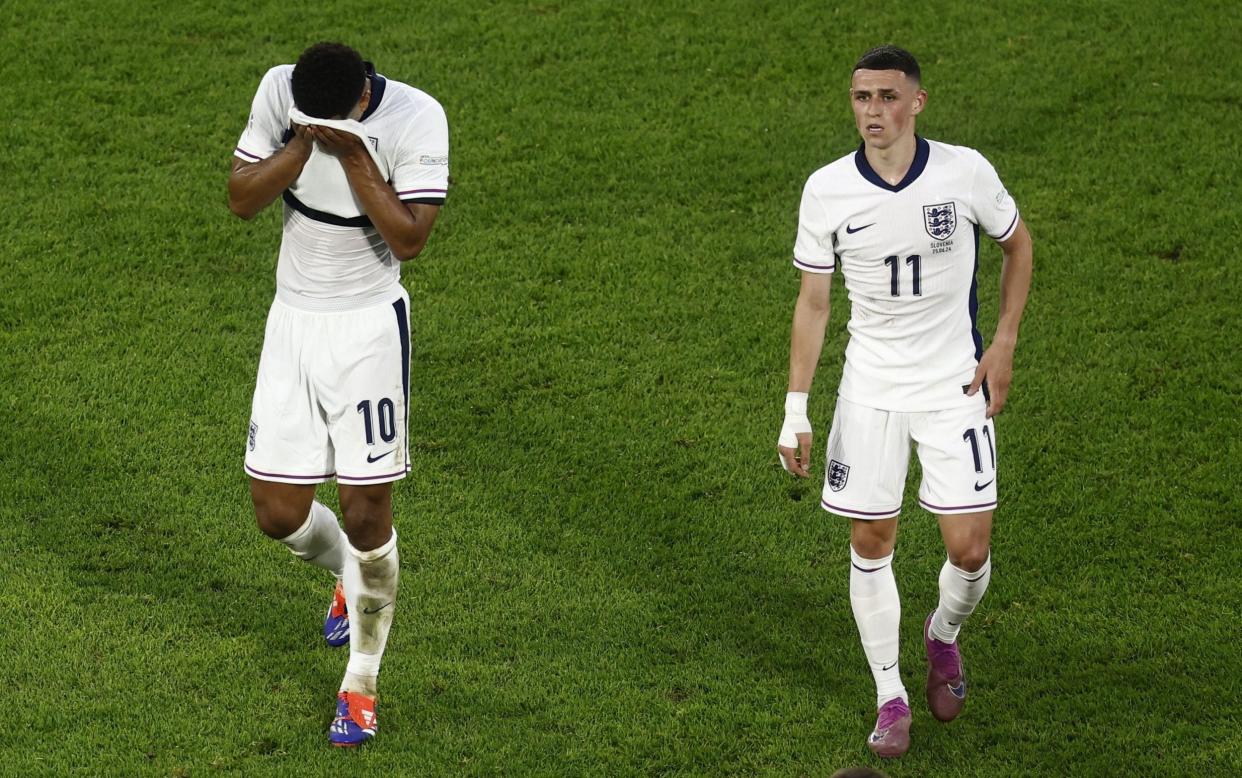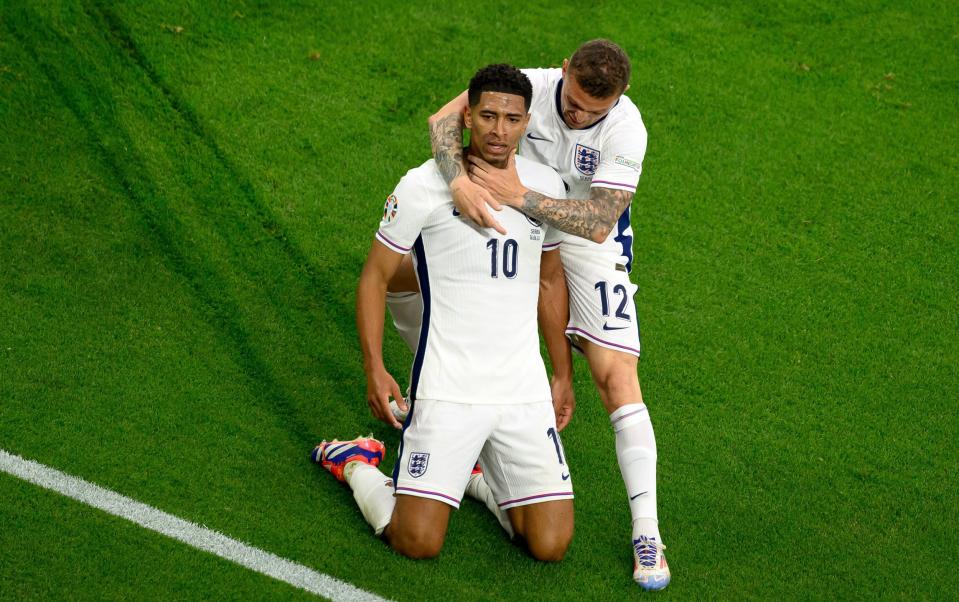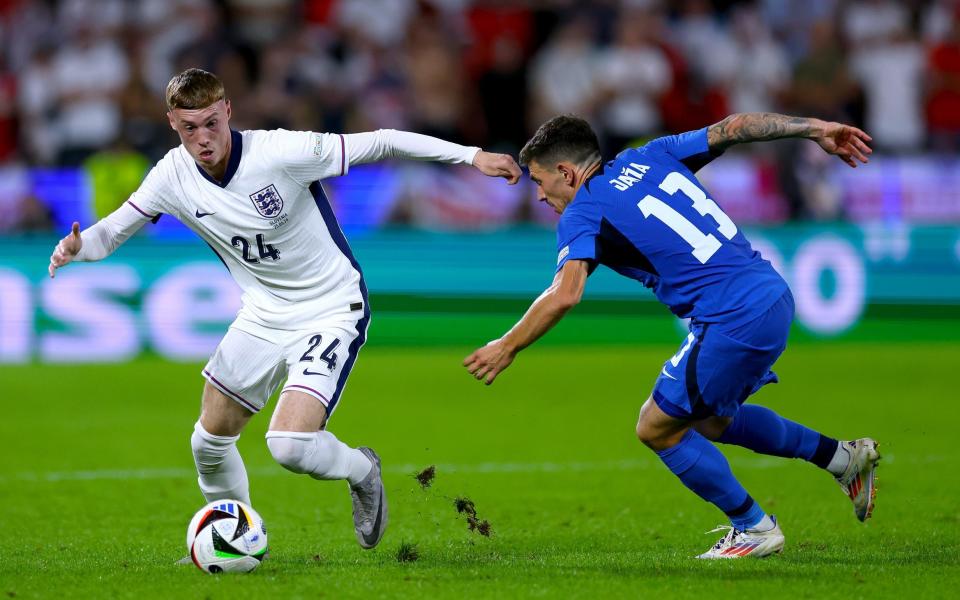England’s big-name players have gone missing – it’s not all Gareth Southgate’s fault

If the England players thought they received a backlash after the previous two games, they may need crash helmets for the next few days.
The performance in the 0-0 draw with Slovenia was once again very poor. This was an opportunity to make a statement against one of the poorest teams in the competition and they failed. All the best talking has been off the pitch so far in this tournament.
Gareth Southgate knows what is coming. There has been an appetite from a large section of England’s support to pin all the responsibility on his shoulders whenever we fall short. He was criticised after reaching a World Cup semi-final and a European Championship final when the team did well, so there is no hiding place when the form is dreadful.
But I maintain what I wrote before the tournament: international football is about big players coming to the party far more than managers. So far, England’s stars have not turned up and their best performances have been in the pre-match interviews.
When Harry Kane and Declan Rice came out fighting after the criticism that followed the Denmark draw, no one was applauding them more than me. They looked and sounded like the leaders they are. The trouble is, when you speak like that, you have to back it up where it really matters. To me, that made the Slovenia performance the worst yet.
For all the flak after Serbia, England began well and won. Denmark are a team with pedigree, even if there is a belief we should be beating them.
Slovenia has a population of 2.2 million and nothing like the resources available to us.
The sum total of England’s contribution to Euro 2024 so far is 45 minutes against Serbia from Jude Bellingham and Bukayo Saka. That is it. We cannot dress it up any other way.

The tactical decisions taken by the manager so far can be debated – there is no question they must change in the knockout stages – but they have hardly been outrageous. Phil Foden has played wide for most of his career at Manchester City. He has played the same role for England for four years and never replicated his club form.
Bellingham is playing the same position for his country in this competition as he has for Real Madrid all season, winning the Champions League. Let’s be honest. He has been anonymous in the past two games.
Saka is outstanding for Arsenal. He has had minimal impact in the past two-and-a-half games. At what point do we take a step back and agree that the underperformance is as much about individuals as the tactics? Whether Southgate goes with a 4-3-3 or 4-2-3-1, England need their top-class players delivering. With the exception of Trent Alexander-Arnold in the first two games (and Kieran Trippier due to the lack of fit left-backs), none of them are being asked to do anything so different to what they do for their clubs.
When I hear fans or fellow pundits demanding more control in midfield, or observations that England need a Toni Kroos or Luka Modric profile of footballer, my immediate response is: Who do you mean?
England do not have such a midfielder, and even when Paul Scholes was in his prime – the kind of midfielder everyone is talking about – we never controlled games.
That is why Southgate went with the Alexander-Arnold experiment in the first place. Now we are hoping youngsters such as Kobbie Mainoo and Adam Wharton will instantly emerge and transform the make-up of the side. Mainoo did well when he came on and should keep his place, but expecting him to dictate massive international games after barely half a season of Premier League football is unrealistic.
Southgate has backed his senior players throughout his reign. He continued to do so with his Slovenia selection, drowning out the noise demanding wholesale changes. After analysing the game, he cannot resist that any longer.
England need a radical solution, and that means leaving out big names because others deserve their chance to shine.
The obvious inclusions for the round of 16 are Mainoo, Cole Palmer and Anthony Gordon. Like Mainoo, Palmer impressed as substitute against Slovenia, and the team are more balanced with Gordon’s pace.

Ripping up part of the team and starting again may be against Southgate’s instincts. He has never had to do it before in tournament football. Now he goes into every game knowing it could be his last as the England manager.
The alternative is more of the same, with players trying to paint a positive picture based on the fact England won the group and are unbeaten.
My suspicion is there are many in the England squad who are in unknown territory in having to deal with such levels of criticism playing for their country. This is the first bad tournament of the Southgate era.
The Manchester City lads have had nothing but historic success throughout their careers.
Rice and Saka are justly lauded at Arsenal, and Kane is probably England’s greatest striker. Bellingham has been elevated to superstar status since his international debut.
In Southgate’s previous tournaments, there were a couple of iffy performances but nothing of such sustained mediocrity as this.
There is a counter-argument that the modern players have to take more criticism because of social media. They are certainly more exposed to internet trolls who cross the line between the analytical and personal, but I am not sure that is what has hurt the players in the past few weeks. Until Euro 2024, the Southgate era has mainly been a case of pundits and those reporters closest to the England side defending the manager and his record from external criticism. The mood has changed.
Nobody watching the first three games – including all of those desperate for success and with the team’s best interests at heart – could offer a positive assessment and emerge with any integrity.
History tells us that to argue that England can recover to win the competition sounds like delusion. While a side are still in it, there is always a chance, but there is no precedent for any side starting so poorly, and looking so in need of mid-competition rethink and restructure, and going on to lift the trophy.
One of the most annoying phrases in football is “imagine what we’ll be like when we start playing well” if a series of terrible displays end in wins, or unbeaten runs. In my experience, you will always get found out sooner rather than later.
England are in a rut, and the only conclusions to be drawn are obvious. If they continue to play like this, they will lose against the first team they meet with the quality attackers to punish them.
As the manager, Southgate will take the fall should the predictions of impending doom prove correct. To stop that happening, the players need to ask themselves this: “Am I playing to my best level?” And if the honest answer is no, is that really down to the manager’s tactics?
If those players returned to the team hotel truly believing the last three performances were due to the manager rather than themselves, England are in an even worse situation than it looks.

 Yahoo News
Yahoo News 
